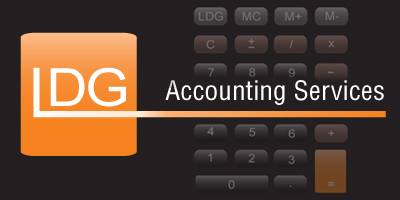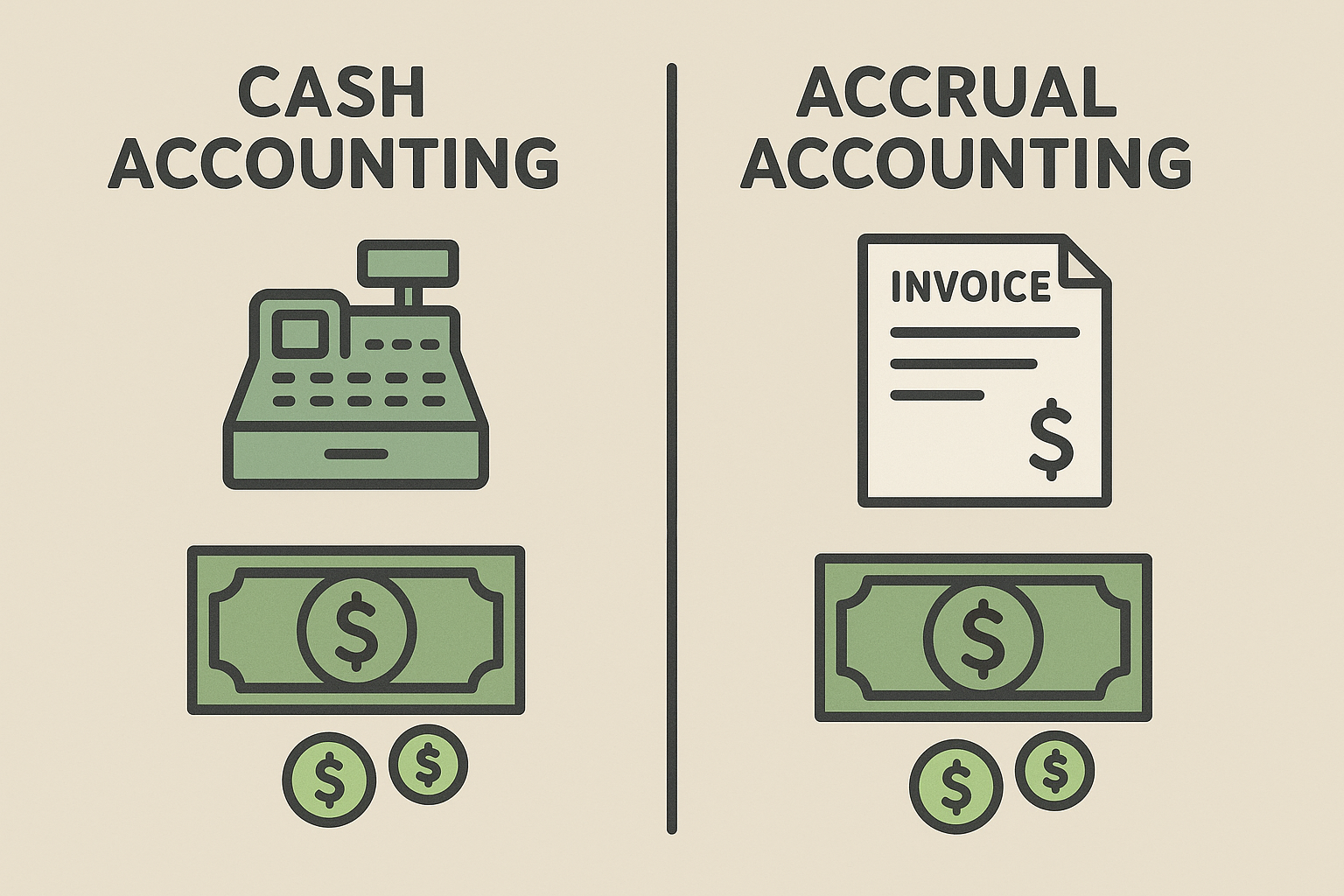Cash vs Accrual Accounting
LDG Accounting Services • May 23, 2025
Differences:
The key difference between cash accounting and accrual accounting lies in when revenues and expenses are recorded:
Cash Accounting
- Revenues and expenses are recorded when cash is received or paid.
- Simple and easy to maintain.
- Often used by small businesses and individuals.
Example:
- You send an invoice in December but get paid in January.
- Under cash accounting, the income is recorded in January, when the cash is received.
Accrual Accounting
- Revenues and expenses are recorded when they are earned or incurred, regardless of when the cash is exchanged.
- Gives a more accurate picture of a company’s financial health.
- Required by GAAP for most larger businesses.
Example:
- You send an invoice in December and get paid in January.
- Under accrual accounting, the income is recorded in December, when it was earned.
Advantages of Accrual Accounting
Accrual accounting has several advantages over cash accounting, particularly for businesses that need a more accurate picture of their financial position and performance. Here are the key benefits:
More Accurate Financial Picture
- Accrual accounting records income and expenses when they are earned or incurred, not when cash changes hands.
- This provides a true reflection of business performance over a given period.
Better Matching of Income and Expenses
- Revenues and the costs associated with earning them are recognized in the same period.
- This helps in evaluating profitability more accurately.
Improved Decision Making
- Since accrual accounting gives a clearer view of ongoing financial obligations and receivables, it supports better planning and budgeting.
Required for Larger or More Complex Businesses
- Generally accepted accounting principles (GAAP) and IFRS require accrual accounting for public companies and many private companies.
- It’s also required if your business has:
- Over $25 million in average annual gross receipts (in the U.S.)
- Inventory as a significant part of operations
Facilitates Credit and Investment Opportunities
- Lenders and investors often prefer or require accrual-based financial statements because they reflect long-term financial health and obligations more reliably.
Tracks Accounts Receivable and Payable
- You can see how much you’re owed and what you owe, which isn’t possible with cash accounting.
- This helps manage cash flow proactively, even if the actual cash hasn't moved yet.











